 |
Information vacuum regarding the situation of Armenians illegally detained in BakuWhat is the situation of our prisoners of war and other detained compatriots in Baku? What role does their country of citizenship, the Republic of Armenia, play in the demand for a fair trial? What is the progress of Armenia's interstate complaint against Azerbaijan at the International Court of Justice? Anna Sargsyan spoke with Siranush Sahakyan, President of the Center for International and Comparative Law. |
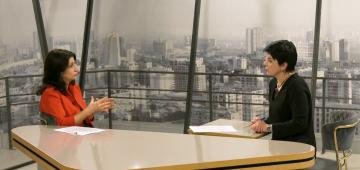 |
Human rights activists sound the alarm: authorities are violating church rightsRepresentatives of the executive and legislative bodies of Armenia continue to interfere with the autonomy and freedom of the Church’s activities, violating the Constitution of the Republic of Armenia and the Law of the Republic of Armenia “On Freedom of Conscience and Religious Organizations”, international norms on freedom of religion or belief and precedential decisions of the European Court of Human Rights (ECHR). The authorities’ attempts to interfere in the formation of church governing bodies and internal decision-making are illegal and condemnable.” A number of non-governmental organizations, human rights defenders and public figures have issued a comprehensive statement. Anna Sargsyan spoke with Anna Melikyan, a legal expert from one of the organizations that signed the statement, “Protection of Rights Without Borders”. |
 |
Human rights activists sound the alarm: authorities are violating church rightsRepresentatives of the executive and legislative bodies of Armenia continue to interfere with the autonomy and freedom of the Church’s activities, violating the Constitution of the Republic of Armenia and the Law of the Republic of Armenia “On Freedom of Conscience and Religious Organizations”, international norms on freedom of religion or belief and precedential decisions of the European Court of Human Rights (ECHR). The authorities’ attempts to interfere in the formation of church governing bodies and internal decision-making are illegal and condemnable.” A number of non-governmental organizations, human rights defenders and public figures have issued a comprehensive statement. Anna Sargsyan spoke with Anna Melikyan, a legal expert from one of the organizations that signed the statement, “Protection of Rights Without Borders”. |
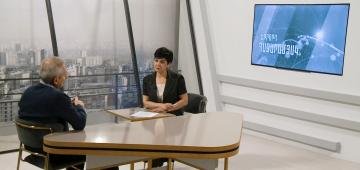 |
The concept of one's own country in international law
Forcibly displaced Artsakh residents have the right to demand to return to their own country, and for this it is not at all necessary to accept Azerbaijani citizenship. Anna Sargsyan spoke with human rights expert Ara Ghazaryan about the legal definition of the concept of "one's own country", as well as the restoration of the violated rights of Artsakh residents, and the violations of the rights of prisoners of war and other detainees held in Baku.
|
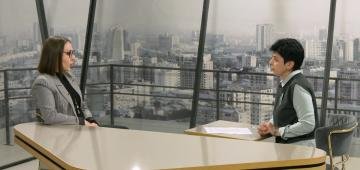 |
Selective Justice in Armenia: Lawyers' AlarmWhat is the fine line between justice and the punitive machine? How to distinguish the fact of being “selective”, especially when encountering restrictions on free speech? Why is the misuse of the expression “hybrid war” dangerous? Anna Sargsyan spoke with Hasmik Harutyunyan, an expert and lawyer from the NGO “Protection of Rights Without Borders”. |
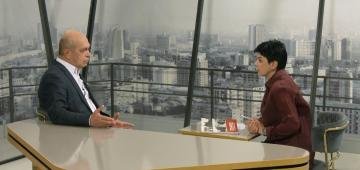 |
The Attempt to Destroy the Church and the Lesson of HistoryThe seizure of church property, the arrests and repression of clergy, the demand for the Catholicos of All Armenians to abdicate, the creation of a church opposition under the guise of reform, the provision of one of the churches to “reformist” clergy. These are historical events that took place several decades ago, during the years of Soviet power. Anna Sargsyan spoke with Avag Harutyunyan, candidate of historical sciences, author of the work “Church-State Relations in Soviet Armenia in the 1920s-1930s.” |
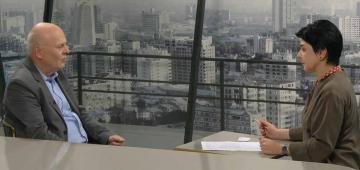 |
An episode from the experience of European public broadcastersThe organization of public broadcasting, political propaganda and pluralism in the media is a challenge for post-Soviet countries. How to be free from government pressure and the opinions of other political forces? Anna Sargsyan spoke with Wolfgang Ressmann, organizer of the European program "Media Dialogue" and long-time director of the German public television. |
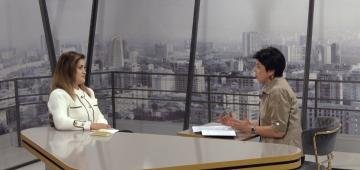 |
Nagorno-Karabakh: Cultural rights violations and forced displacementsThe work “Nagorno-Karabakh: Violations of Cultural Rights in the Context of Forced Displacement” has been published. The book is dedicated to the study of the multifaceted violations of the cultural rights of Artsakh Armenians forcibly displaced from their historical homeland as a result of the wars, ethnic cleansing, genocidal acts, racial hatred, discrimination, and systematic destruction of cultural heritage unleashed by Azerbaijan in 2020-2023, and the presentation of mechanisms for their protection. Anna Sargsyan spoke with the author of the monograph, Candidate of Historical Sciences Armine Tigranyan. |
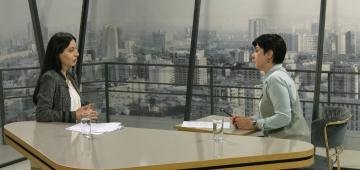 |
Church-state legal relations and their violations in our timeAccording to Article 17 of the Constitution of the Republic of Armenia, “Freedom of activity of religious organizations is guaranteed in the Republic of Armenia. Religious organizations are separate from the state.” What restrictions does the law provide for both a state body and an individual official, as well as a religious organization and its representative? Anna Sargsyan spoke with lawyer Anna Sardaryan |
 |
Church-state legal relations and their violations in our timeAccording to Article 17 of the Constitution of the Republic of Armenia, “Freedom of activity of religious organizations is guaranteed in the Republic of Armenia. Religious organizations are separate from the state.” What restrictions does the law provide for both a state body and an individual official, as well as a religious organization and its representative? Anna Sargsyan spoke with lawyer Anna Sardaryan |
 |
First half of 2025In Azerbaijan, including Artsakh, about half a million Armenians lived during the Soviet years. In the 90s, all Armenians were expelled from Azerbaijan and their property was confiscated. Why does the Armenian side not demand compensation? Why are claims against Azerbaijan in international courts important? What topics were discussed by the expert guests of the "Third Millennium" during the first six months of 2025? |
 |
Memory and securityCollective memory is a security tool that has an important component: what to forget. That is why Azerbaijan is erasing and completely destroying any symbol of Artsakh's statehood. After annexing Artsakh, Azerbaijan was the first to destroy the institutions reminiscent of statehood. It is destroying and re-editing the evidence of Armenians' centuries-old life in Artsakh - churches and historical and cultural monuments. Why is collective memory part of security? Anna Sargsyan spoke with ethnographer Ruzanna Tsaturyan. |
